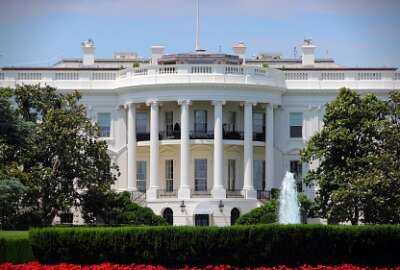The Office of Government Ethics has a new motto this year to prepare for the upcoming presidential transition: more, better, faster.
“One of the greatest things about our country is the peaceful transition of power as a new administration comes in and takes the reigns from the outgoing one,” OGE Director Walter Shaub said. “We can do this right. We have the capacity to do it. The key is just everybody needs to stick with the mantra of more, better, faster. We’ve got to build the capacity. We’ve got to stay dedicated to this mission and focused on the idea of being ready to support outgoing officials and incoming officials so we can sustain an ethical culture in the government.”
This year, OGE is starting to prepare earlier, and Shaub said the agency has several tools it didn’t have during the last transition that will aid its work in 2016.
Part of that effort comes first from training. The agency began preparations in January 2015 to train its own employees and additional staff members to review political nominees’ financial disclosures and conflicts of interest.
“That work triples during a presidential transition, and not only does it triple, but the reports become more complex and the turnaround times have to be faster,” Shaub said.
OGE is also reinventing its training program to reach as many of the 4,500 ethics officers across 130 different agencies as it can. The goal, Shaub said, is to get them up to speed on the political nominee process and help them manage a heavier workload when the 2016 transition begins in earnest.
Before Shaub came on board as OGE director in 2013, the agency completed about 1,400 registrations to train ethics officers. By the end of fiscal 2015, OGE registered 7,500 through massive open online courses and other learning opportunities.
The agency published a new financial disclosure and ethics agreement guide to serve as reference points for agency officers.
And OGE’s financial disclosures electronic filing system is also ready for the 2016 transition. The agency officially rolled out Integrity last January to help streamline public filings for political appointees in the executive branch.
The system now has about 12,000 users across 120 different agencies, Shaub said.
“We swung for the bleachers and really tried to hit a home run on this one,” he said. “We’ve built a very intelligent system that actually asks filers — nominees in particular — questions about their financial holdings. It’s as if an ethics official is sitting in the room with them, with the hope that by the time they file that first report, it comes to us in better shape and there’s a lot less back and forth work to do.”
Focus on transparency
Agencies and presidential campaigns will have new requirements to stand up their transition teams and begin those preparations at least six months before Election Day once President Barack Obama signs the Presidential Transitions Improvements Act into law. The bill cleared Congress earlier this week.
While the law won’t change how OGE does its job this year, Shaub said it will encourage agencies to actively prepare for the coming administration change more openly.
“In the past, efforts have been done quietly to make sure that we’re not creating any kind of impression one way or the other, but [that] we’re ready for a transition,” he said. “This next time with this bill in place at the end of a president’s first term, we’ll be able to prepare very openly, and we’ll be able to encourage people to do that.”
Shaub acknowledged that in many cases, agencies have more pressure to be transparent and show compliance with government ethics laws and regulations than ever before.
“The federal workforce is one of the most carefully scrutinized workforces in the entire world, and that’s exactly as it should be,” he said. “This is a representative form of government. People have to be able to know what their officials are doing, what their motivations are, what their financial interests are [and] what their activities are. We’ve in a lot of ways tried to model that kind of transparency.”
Shaub said OGE puts a priority on making most of its guidance, documents and legal advisories public and easily accessible on the agency’s website. OGE’s training videos are available on YouTube.
For the second time since Shaub took office as director, the agency opted to convene a training summit in Washington, D.C., rather than hold a conference at remote location.
The first summit, which OGE hosted in 2014, cut events spending costs by 99 percent, Shaub said. This year, the agency live-streamed more of the summit’s speeches and panel discussions, so that agency ethics officers could watch from their offices across the country. OGE will post the sessions it couldn’t live stream to its website after the summit ends.
But as agency budgets continue to tighten, Shaub said it’s important that agencies maintain the appropriate resource and staffing levels for their ethics programs. It’s one of the biggest challenges he sees for OGE — and the broader government ethics community — in the future.
“We have to be careful to send the message to agencies that an ethics program isn’t mere overhead, that it’s absolutely essential to everything you do,” he said. “When things fall apart and ethics issues start arising, an agency’s program loses credibility and it can’t accomplish it’s mission as effectively.”
Copyright
© 2024 Federal News Network. All rights reserved. This website is not intended for users located within the European Economic Area.
